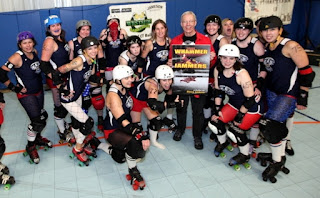Another fact of nature that plays an important role in crime fiction is that people often don’t tell the truth. Almost never. They lie, hedge, dissemble, prevaricate, and weasel their way through their lives, flooding the environment with oceans of uncertainty.
Not everyone lies all the time, but
everyone is in the habit of telling only part of the truth. This is usually meant to maintain civility
and pleasant relations, though there’s a lot of daylight between complimenting
your mother-in-law’s lousy meatloaf and telling the cops that you were home all
night and have no idea how that BMW ended up in your garage. We do these sorts of things naturally and fluently,
having evaded responsibility for cleaning out the cookie jar or socking little
brothers as soon as we can form sentences.
It’s innate.
Raymod
Chandler described detective fiction as “riding around in cars and interviewing
people.” Maybe he didn’t actually say that,
but it fits with his general view of the genre.
And while driving skills are fairly widespread, a good interviewer is an
artist.
There
was an awful lot I liked about the advertising business, but aside from
creating ads, the thing I liked most was qualitative market research. That is the academic term for what mostly involves
interviewing people, one-on-one, or in groups.
You might believe, like most people, that marketing is a soulless
endeavor, but not if you’ve had a bunch of guys in a room talking about their
cars. Or intercepted a pack of teenagers
in a mall to learn why they’re buying brand new jeans with the knees ripped
out. Or shadowed kitchen-table insurance
agents as they chatted with ordinary people about death, disability and destruction.
After hundreds of these encounters discussing thousands of individual judgement calls, I’ve learned a few things.
Everyone likes to talk about
themselves and what they do for a living, or how they spend their free
time. In other words, their lives. That’s why salesmen, journalists, homicide
detectives and hostage negotiators want to get the conversation on a personal level
as quickly and smoothly as possible. You
cynics out there claim the interviewer’s true feelings can be faked, but they
can’t. You won’t succeed without some
natural empathy and a genuine interest in what people have to say.
Although a research interview isn’t
a test, everyone thinks there’s a right answer.
There’s an urge to please that’s very powerful, but also a desire to
look good in the eyes of the interviewer.
That’s why focus groups (a session where one questioner tries to extract
information on a specific subject from five, or eight, or ten people sitting
around a conference room) can be a harder nut to crack, since few enjoy
standing out from the consensus. You
have to convince each individual that the only right answer is what they
actually believe if you want any meaningful outcome.
You’ve probably noticed that the accuracy of political polling has been falling dramatically. One reason is it’s hard to get people on the phone, and even harder to catch them face-to-face. In my experience, phone interviews themselves are far less effective than in person, for reasons explicated above. I think written questionnaires are close to worthless, and online surveys worse than that. Social research is a bit of a science, but it’s mostly an art. Which is why detectives and savvy researchers always prefer to handle their assignments in the flesh. You can hide those lying eyes, but it’s harder with the questioner staring you right in the face.
Body language is often the most
articulate. This is because gestures and
facial expressions are less voluntary. Things
just sort of leak out that you aren’t intending. Consequently, the first reaction is usually
the most reliable, because it springs from an emotional response. Over the following few seconds, the conscious
mind takes the reigns, and people begin to say what they think they ought to
say, or what their conditioning says is the proper point of view.
People often don’t know why they
want what they want. Or why they did
what they did. Humans aren’t robots, but
we do tend to delegate a lot of our behavior to unconscious impulses. But when gently pressed to apply logic and
reason to emotional decisions, we’re not that bad at figuring it out. It may not be the whole truth and nothing but
the truth, but it’s often good enough for storytellers in any line of
business.



































